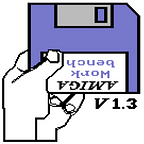WayMo, the self-driving car part of Google, has filed a complaint against Uber. WayMo claims that one of their employees stole secrets:
We found that six weeks before his resignation this former employee, Anthony Levandowski, downloaded over 14,000 highly confidential and proprietary design files for Waymo’s various hardware systems, including designs of Waymo’s LiDAR and circuit board. To gain access to Waymo’s design server, Mr. Levandowski searched for and installed specialized software onto his company-issued laptop. Once inside, he downloaded 9.7 GB of Waymo’s highly confidential files and trade secrets, including blueprints, design files and testing documentation. Then he connected an external drive to the laptop. Mr. Levandowski then wiped and reformatted the laptop in an attempt to erase forensic fingerprints.
That is one hell of a paragraph. It’s a miniature thriller. Obviously Google is making a case that skullduggery happened, and the truth may be far more complex, so read with some caution. (The entire complaint is good reading, too, if you like legal complaints.)
The technology industry is full of surprises, and while I’ve kept up to speed on how you secure web things, I haven’t paid much attention to laptops. Is that really the level of data that is captured when you use a computer controlled by a large company?
I asked that question on Twitter, and the replies came back saying, basically: “Yes, dummy.” They’re watching you all the time! One person also pointed out that Google even has its own philosophy of enterprise security—the paper that describes their approach, which they call “BeyondCorp,” is pretty abstract, but as you read it you realize that, yep, they are tracking lots of stuff.
I’m wondering, what if I installed corporate monitoring software on my own laptop? What would I want to know?
I remember in the early days of the web you would just watch the access logs and you’d watch people traverse your website, going from page to page, and new lines of gibberish would light up on your screen. It was cool to see the world show up and look at what you’d made. You had this strangely very abstract feeling of connection and intimacy as IP addresses appeared. You used to watch the computer talk to other computers, and now the computer watches you talk to people.
It’d be interesting to see just how many characters I type. All the sites I visit, sure. The time spent in different apps, and the various things that pass through my network card. I’d love to see all the images I look at in a given day that are bigger than 500px. I would love to know how many people I emailed, how many I tweeted at. I would love to know how often my computer is using all of its processing power, and how often it’s idle. There’s probably a lot more this laptop could be doing for me.
It’s for Windows, but look at everything you can do with SpyAgent:
My Lord! That software costs around $70. That’s a lot of spying for that price.
I think the thing that really surprised me about the WayMo complaint isn’t that this information was readily available, but that it could be used to craft a story that is so compelling, and so detailed. There are millions of stories like that out in our data. Some of them are probably highly, highly embarrassing. Some are probably ennobling, and tell about people doing well for others. But you’d never hire lawyers to tell those.
